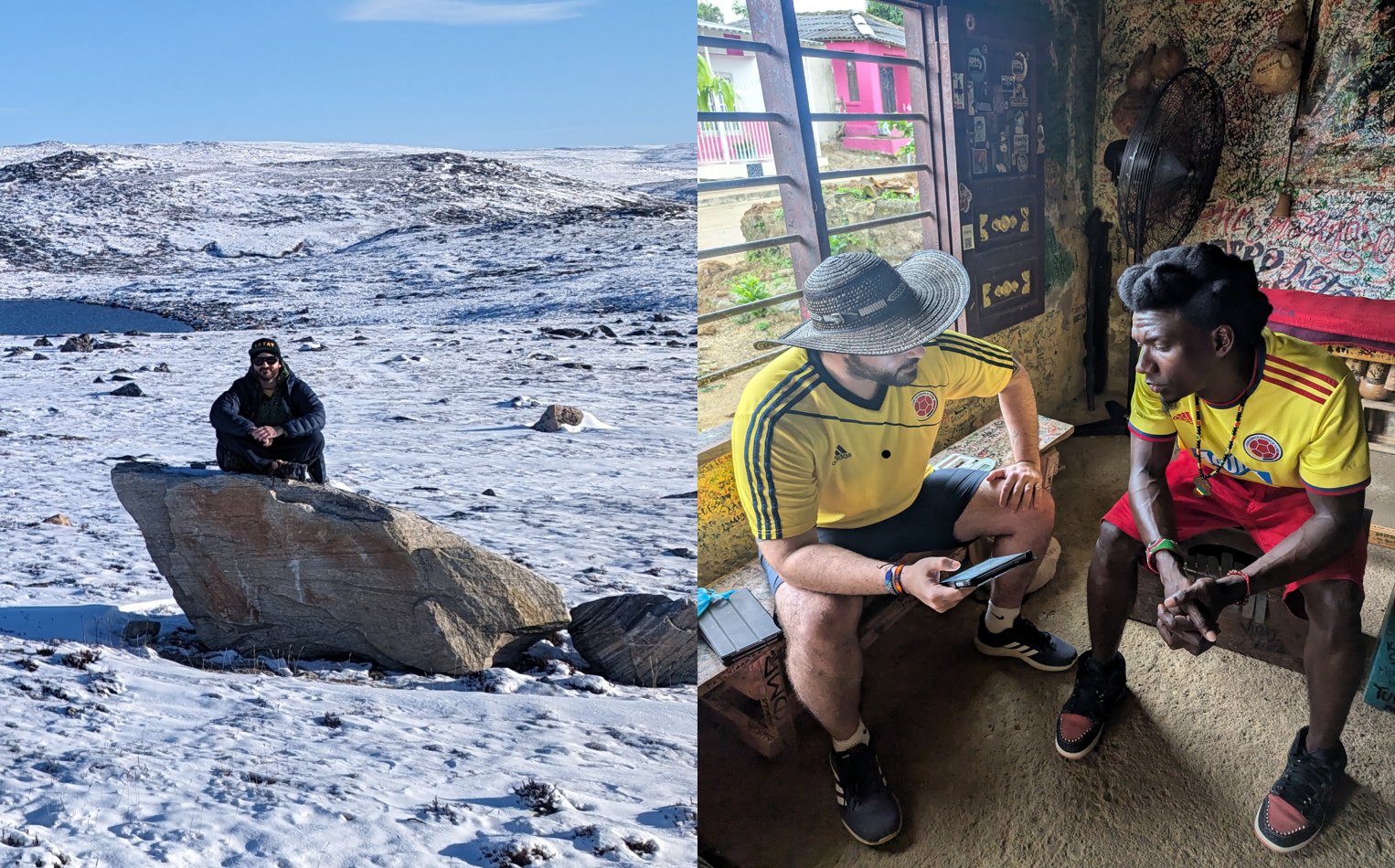Alejandro Pérez Velilla
I am a PhD candidate at the Cognitive and Information Sciences department at University of California, Merced. I have a background in social and cultural Anthropology, and I am currently a Guest Researcher at the Department of Human Behavior, Ecology and Culture at the Max Planck Institute for Evolutionary Anthropology.
I am broadly interested in the feedback between environment, culture and individual decision-making, with a particular interest in how material and social conditions, along with history, affect the ways in which people perceive and react to risk and uncertainty, in turn feeding back into the socioecological environment.
Currently, my work is focused on three main subjects:
- The strategic use of social learning under environmental uncertainty.
- The inter-generational cultural persistence of responses to environmental shocks, commonly referred to as “generational trauma”.
- The ways in which perceived risk can drive (or hinder) the emergence of cooperative norms, and how mechanisms such as reputation-building can serve as a scaffold for the persistence of these norms after perceived risks have disappeared.
Methodologically speaking, I focus on building formal dynamic models of learning and strategic choice and using them to derive theoretically-robust testable hypotheses to be deployed in field and experimental research. I also specialize on the construction of causal inference schemes within a Bayesian framework, as well as simulation-based inference methods such as Approximate Bayesian Computation for likelihood-free inference with complex models.

Publications
Work In Progress
Pérez Velilla, A., Padilla, K. J., Cassiani Cervantes, D., Herrera, Y., Hernández, A., Hurtado Manyoma, A., Pérez Salinas, M., Sosa, S., Dalla Ragione, A., Ross, C. T. A full-population assessment of Palenquero proficiency in San Basilio de Palenque, Colombia.
Pérez Velilla, A., Smaldino, P. Similarity-biased learning: a theory.
Pérez Velilla, A., McElreath, R. Breaking the paradox: bet hedging and the evolutionary rationality of social learning.
Pérez Velilla, A., Ready, E. The emergence of sharing networks through indirect signaling.
Pérez Velilla, A., Nöldeke, G., Peña, J. Reciprocity and the evolution of risk-reduction sharing.
In press
Pérez Velilla, A., Beheim, B., & Smaldino, P. E. (In press). The development of risk behaviors and their cultural transmission. Psychological Review. American Psychological Association. Preprint at SocArxiv.
Pérez Velilla, A., Smaldino, P. (In press). Risk, learning and culture. In A. Gallup, S. Karitheyan, G. Geher. (Eds.) Oxford Handbook of Evolutionary Psychology. Oxford University Press.
Pérez Velilla, A., Smaldino, P. The adaptive role of peer culture is shaped by risk landscapes. Commentary for target article Lew-Levy, S. \& Amir, D. (In press.) Children as agents of cultural adaptation. Behavioral and Brain Sciences. Cambridge University Press.
2024
Smaldino, P. E., Pérez Velilla, A. The evolution of similarity-biased social learning. Evolutionary Human Sciences. 2025;7:e4. doi:10.1017/ehs.2024.46
Smaldino, P. E., Moser, C., Pérez Velilla, A., & Werling, M. (2024). Maintaining transient diversity is a general principle for improving collective problem solving. Perspectives on Psychological Science, 19(2), 454-464.
2022
Pérez Velilla, A., Moser, C. J., & Smaldino, P. E. (2022). Hidden clusters beyond ethnic boundaries. Behavioral & Brain Sciences.
Contact
aperezvelilla@ucmerced.edu
github